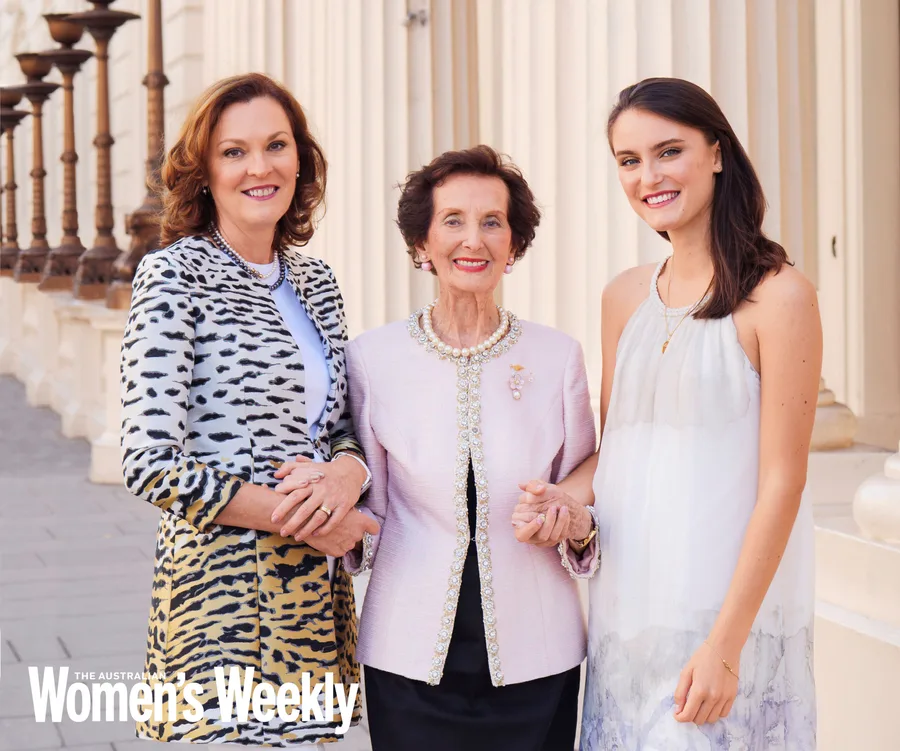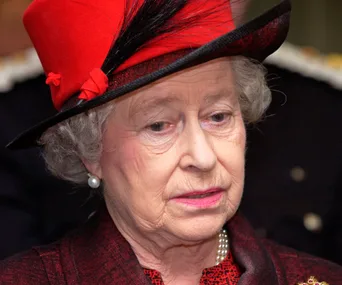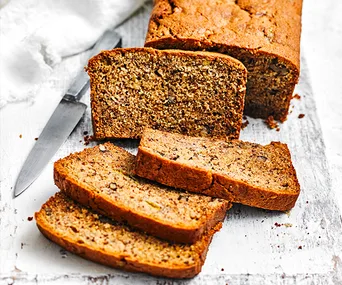This is an edited version of an article originally published in The Australian Women’s Weekly in May, 2019.
Miss June Dally-Watkins’ smile never falters. Ever. Neither does her posture nor her poise.
There is no slumping in Miss Dally’s world; no vulgar cleavage or, gasp, tattoos.
Instead there are pearls, always pearls, and immaculate make-up in the afternoon, as she takes your arm to walk down the street.
You feel your back getting straighter as you listen to her perfectly enunciated vowels; your manners being minded. You wonder if you could ever have the discipline to be so endlessly gracious.
At a graduation ceremony for her personal development students in Brisbane, she is regal; the queen of the correct way to do things; a tiny love bomb of formidable femininity.
“The greatest gift of all is love. We have to love ourselves to love others, to show kindness,” she tells the graduates. “And don’t look false.”
As they have for more than six decades, her newly demure girls will sally forth with their heads up and shoulders back, knowing their table manners, how to carry themselves, how to be confident, how not to be “common”.
“How,” she says, “to be the best that they can be.”
Miss Dally was once Australia’s most photographed model and when she launched her School of Deportment, in 1950, she became the first Australian woman to open a corporate business and, controversially for that time, a mother of four who kept working.
For being a career woman and working mother, she received abuse and criticism, hate mail calling her a bad mother, phone calls saying her children would end up delinquent.
“I was made to feel a failure as a wife and mother,” she writes in her memoir, Still Smiling, “but I resolved to never give up the right to live my own life.”
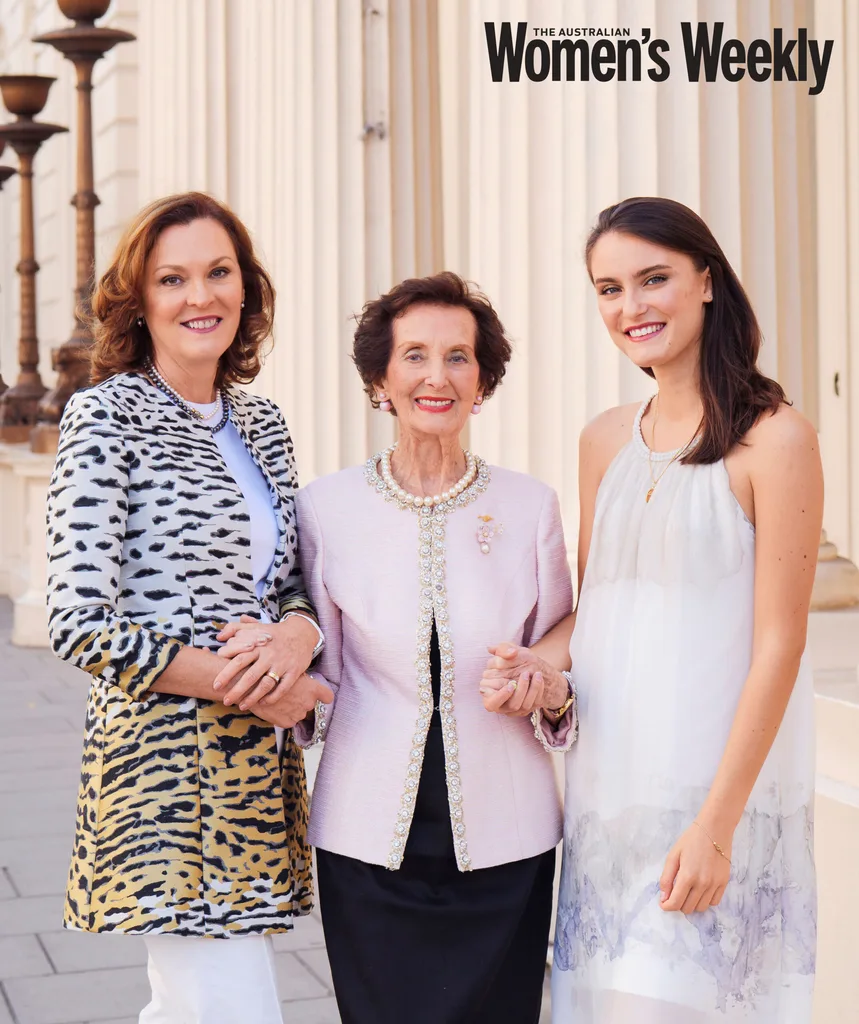
June (centre) with daughter Lisa and granddaughter Natalia in 2019.
(Credit: Photography by Edmond Terakopian.)When she was a child, Lisa Clifford, Miss Dally’s youngest, “didn’t really know or care” that her famous, glamorous mother had once gone out with the movie star Gregory Peck.
“The only way that it affected me was on the rare occasions she came to a school play – all the girls would strike poses in the hope that she would choose them to be a model.”
But she says, “she was battling a whole lot of different stigmas. People didn’t know what models were or agencies were; they viewed them with suspicion; something akin to loose women.”
Lisa believes that what has driven her mother all these years, what that smile has been hiding, the reason for her determined self-reliance, is the struggle of her childhood.

June launching her memoir The secrets behind my smile with former Editor-in-Chief of The Weekly Ita Buttrose in 2002.
(Credit: Getty Images.)Far from the world of high society that she would come to epitomise, Miss Dally grew up an “illegitimate” child on a remote sheep farm at Watson’s Creek, NSW, at a time when single mothers were social and moral outcasts.
“So I masked my shame and buried my self-consciousness with a smile,” she writes in her memoir. “Something I have done all my life.”
“She has an extraordinary iron will,” Lisa tells The Weekly.
“Her life has been a battle for legitimacy. That is the core reason for this molten steel determination. She had a tough, tough childhood and it was always a battle.
“The stigma around illegitimacy – I never appreciated, as her daughter, the inner conflict that gave her. She is not at all bulletproof. She has genuine fears that drive her.
“But if you look at it for what it is, it is an illegitimate child from Watson’s Creek, who has no claim to be the doyen, yet she has forged this crown for herself. She has made that from nothing, and that is extraordinary.”
WATCH BELOW: NZ Prime Minister Jacinda Ardern’s compassionate response to the White Island volcano disaster. Article continues after video.
Miss Dally’s mother’s own dreams of travel and becoming somebody had been thwarted by her unwed pregnancy, but together they would walk the two kilometres to the post office to pick up magazines, including The Weekly, and dream of being like the women in those glossy pages.
Carrying her mother’s dreams, Miss Dally would go on to be a frequent Women’s Weekly cover girl.
“I grew up on a sheep farm with my grandparents, but even though I was out there chasing sheep and shooting rabbits, my mother always insisted that I had good posture and good manners.”
“And she always insisted that I spoke well. She would say, ‘One day you might travel the world.’ I was the same with my children because I wanted them to do well in life.”
Lisa remembers her mother as “always working, always trying to juggle. I remember the times when she tried to visit my brother at boarding school every weekend and tried to take us to mass on a Sunday night and tried to cook us dinner.”
“If you have four children and you have the ambition that my mother had, my belief is that you cannot have it all. Women can’t sadly.”
“You can’t be June Dally-Watkins, with two boys and two girls, while you are trying to establish a deportment school in Queensland and NSW, and take fashion tours all over Asia to promote Australian fashion.”
“Somewhere along the line someone is going to suffer. It is either the mother or the children who wear the consequences of those decisions.”
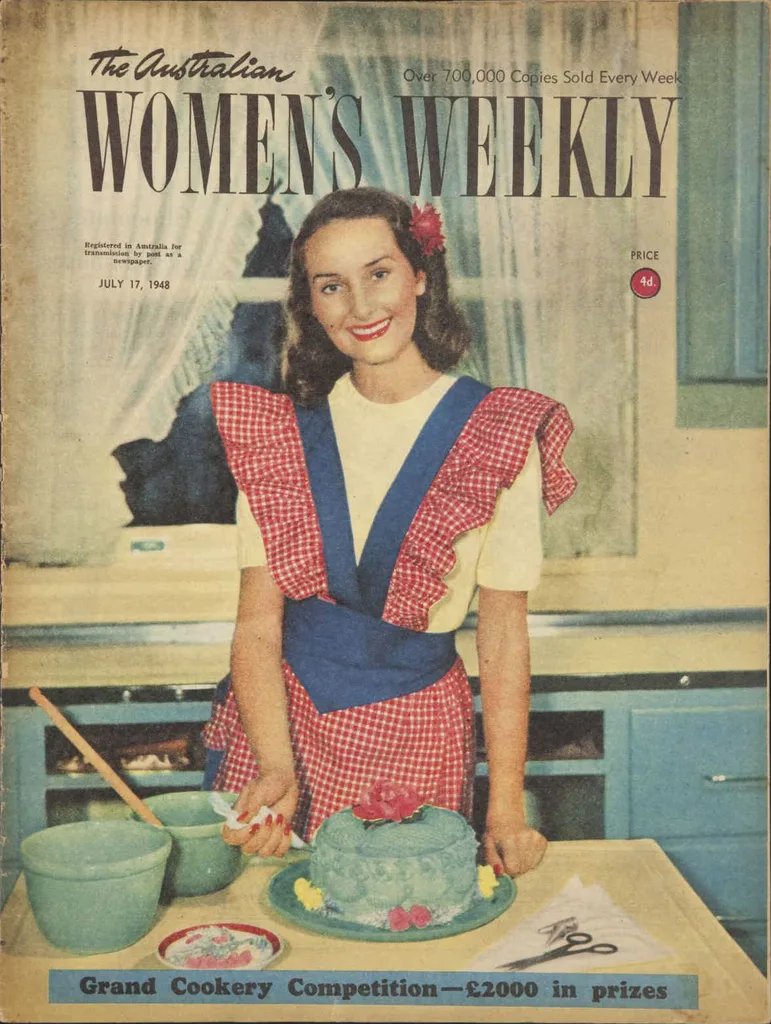
June Dally-Watkins smiling on the cover of The Weekly back in July, 1948.
(Credit: National Library of Australia)Even though her time with her children was “sacrificed”, Miss Dally says she tried to provide the best for them materially.
“They had enviable compensations – a privileged upbringing, a wonderful home, exclusive private school education, international travel and as much love as I could give them.”
And were Miss Dally’s children expected to uphold her impeccable standards? “Oh they had to behave themselves, yes they did.”
Says Lisa: “I always wanted the mum who was home baking cookies, yet I never doubted that she loved me. To achieve what she has and have four kids, she clearly couldn’t have been the mum at home baking cookies.”
“Mum fought the war of having a right to work and having a voice. She took the territory in battle terms that her generation were fighting.”

Natalia and Lisa had a close bond with June and listened to her stories fondly during our interview.
(Credit: Photography by Edmond Terakopian.)Natalia, Lisa’s daughter, is the beneficiary of three generations of strong women, including her Italian nonna. She has just completed a degree in international relations in London, and is heading towards working in human rights.
She already has a start-up which aims to provide affordable electricity to people in Malawi and Zimbabwe, countries where up to 88 per cent of the population doesn’t have power at all.
She’s been to China to work with Crossroads, the charity Miss Dally is ambassador for, and teach at her school. To her, Miss Dally is a grandmother.
“I didn’t have access to the whole hype around Nonna,” she says, but still, “when I see her I am on my best behaviour: no burgers, nothing like that. If I were to have a burger, it would be with a knife and a fork.”
WATCH BELOW: Olivia Newton-John discusses her cancer diagnosis on The Project. Story continues after video.
She believes Miss Dally is often misunderstood in Australia. “A lot of comments are negative: ‘Women today shouldn’t have this attitude. Women shouldn’t be about etiquette’. But if she has influenced me in any way, it’s in the role of female empowerment.”
Natalia has seen Miss Dally’s impact. “At the end, the girls just cry. They hug her and say, ‘I have learned so much about accepting myself.'”
“One of the things we discovered there was the extent of depression in kids not reaching parents’ expectations … Nonna says: ‘Don’t rely on what your parents want you to do – do what you want to do.’ Nonna is trying to spread that message, more than any other.”
Lisa was trained to be the superbly put together Miss Dally woman who turns heads as she walks into a room, and she is.
As far as the famous poise is concerned, she says, “I can turn it on and turn it off.”
But that’s not all her mother has taught her.
“She has always tried to go deeper and add more layers to it,” Lisa says.
“Be honest, be genuine. And being the best you can be is about finding your own path. She always taught me that manners are about being considerate.”
And after the years of quiet rebellion, Lisa feels she has come to a comfortable place in her relationship with her mother, and she can admit that, “In the end, all children do is try to seek their parents’ approval. I have my mother’s approval and I’m happy.”
June Dally Watkins passed away peacefully in her sleep on Sunday, 23 February 2020. The Australian Women’s Weekly offers its condolences to her family.
